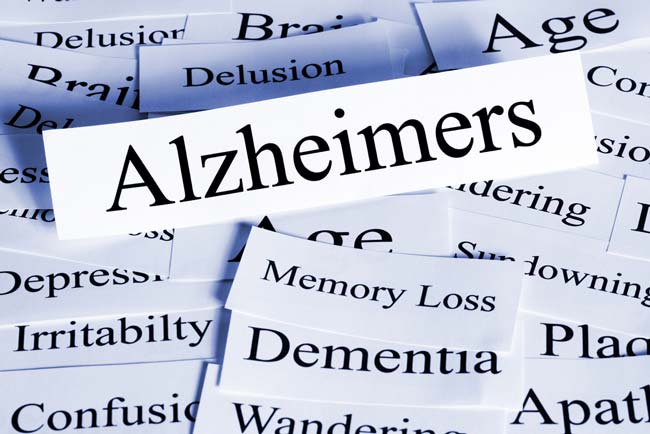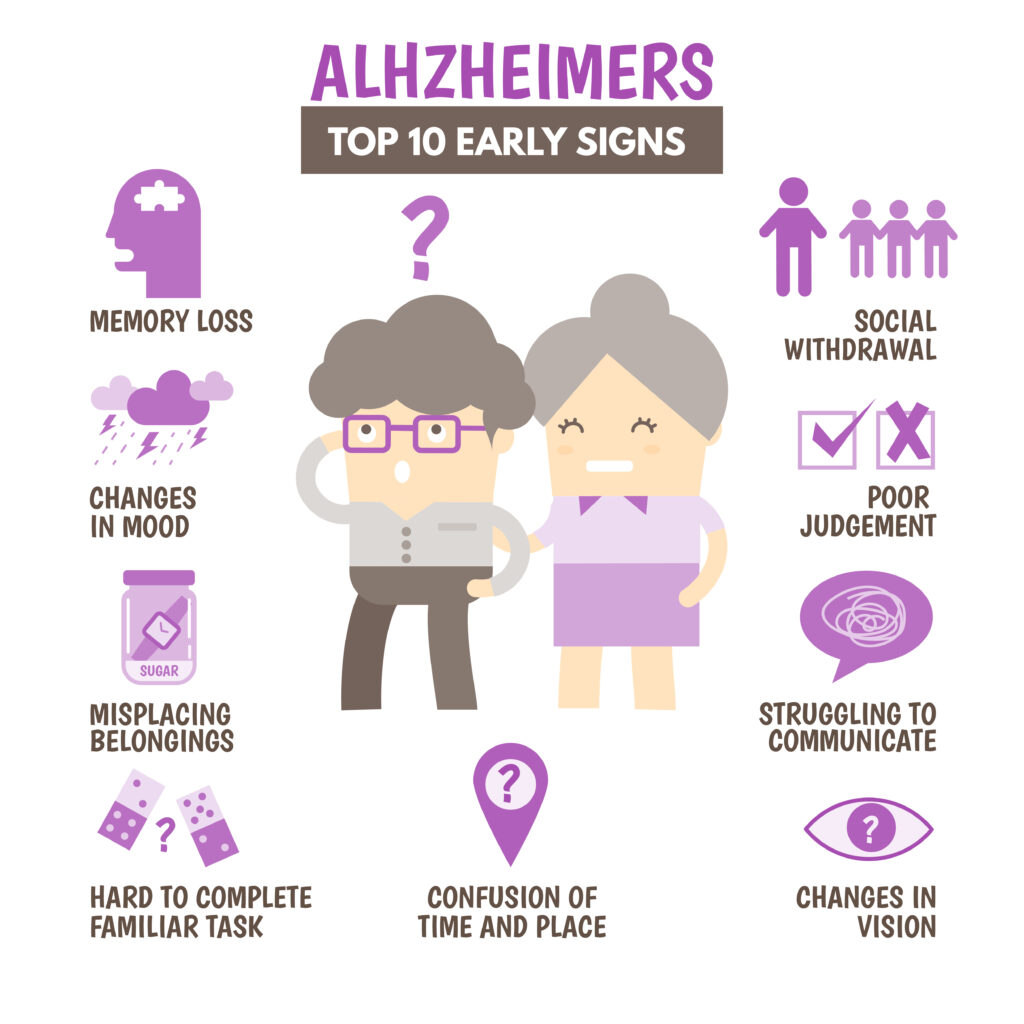When you think of dementia and Alzheimer’s disease, memory loss comes to mind. But while that’s often one of the symptoms, it’s not the only one.
The other symptoms, though, are often less well-known. November is Alzheimer’s Disease Awareness Month — offering the perfect opportunity to learn more about the disease and how it shows up.
First, let’s take a look at the numbers.
Alzheimer’s Disease: By The Numbers
An estimated 6.7 million Americans age 65 and older will be living with Alzheimer’s dementia in 2022. Seventy-three percent are age 75 or older.
- An estimated 6.7 million Americans age 65 and older will be living with Alzheimer’s dementia in 2022. By 2050, that number is projected to double (~14 million).
- One in nine people age 65 and older (11.3%) has Alzheimer’s dementia.
- Almost two-thirds of Americans with Alzheimer’s are women.
- Older Black Americans are about twice as likely to have Alzheimer’s or other dementias as older Whites.
- Older Hispanics are about one and one-half times as likely to have Alzheimer’s or other dementias as older Whites.
- In the United States, Alzheimer’s and dementia deaths have increased 16% during the COVID-19 pandemic.
- 1 in 3 seniors dies with Alzheimer’s or another dementia. It kills more than breast cancer and prostate cancer combined.
- More than 11 million Americans provide unpaid (family/friends) care for people with Alzheimer’s or other dementia.
- In 2022, these unpaid caregivers provided an estimated 18 billion hours of care valued at nearly $339 billion.
- Only 53% of Black Americans trust that a future cure for Alzheimer’s will be shared equally regardless of race, color, or ethnicity.
- 3 in 10 Hispanics do not believe they will live long enough to develop dementia.
- Between 2000 and 2019, deaths from heart disease have decreased by 7.3%, while deaths from Alzheimer’s have increased by 145%.
Understanding The Symptoms of Alzheimer’s Disease
While memory loss is the most apparent symptom of any type of dementia, there are many other symptoms to keep an eye on.
The Alzheimer’s Association has identified 9 early signs of Alzheimer’s disease.
Talk with a doctor if you or a loved one are experiencing these symptoms — especially if you see a pattern emerging. When it comes to Alzheimer’s disease and other types of dementia, early detection, and prompt treatment are essential to limit the effects of the disease.
Early Detection & Alzheimer’s Disease
Today, there is currently no cure for Alzheimer’s disease, though research is ongoing. However, treatments are available to help those diagnosed with the disease manage the symptoms and maintain a quality of life.
That’s why it’s essential to talk with a doctor if you begin experiencing signs of dementia.
There’s not a single test that decisively determines whether a person has Alzheimer’s disease. Instead, doctors will obtain a thorough medical and family medical history, analyze a person’s mental status and mood, conduct a physical and neurological exam, and run other tests that rule out non-dementia causes of symptoms.
Once Alzheimer’s disease is diagnosed, doctors have several treatment options at their disposal — including medications to help with memory loss, therapies and medications to help with behavioral changes, and medications to alleviate sleep difficulties. Depending on the severity of the disease, a doctor may also recommend lifestyle habits that can help boost memory and cognitive health, like physical exercise, dietary changes, and brain exercises.
Berneet Kaur, MD, is a Erlanger Memory and Aging Services neurologist. Learn more about Erlanger Memory and Aging Services here.









